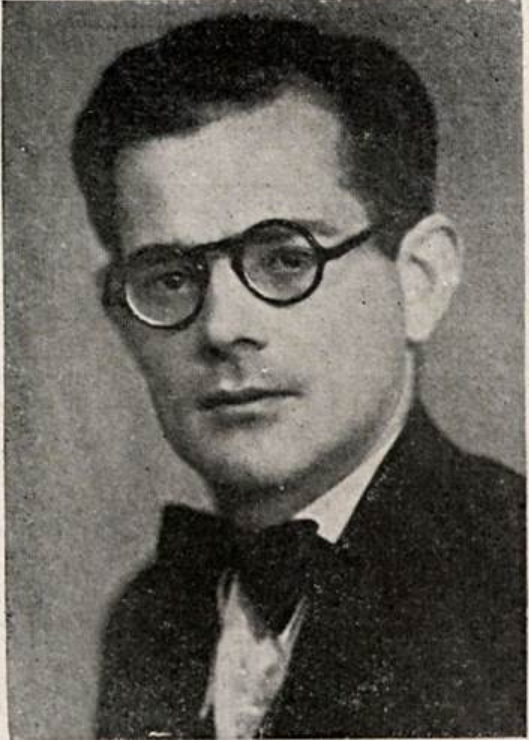Orígenes Lessa on:
[Wikipedia]
[Google]
[Amazon]
 Orígenes Lessa (July 12, 1903 in Lençóis Paulista – July 9, 1981 in
Orígenes Lessa (July 12, 1903 in Lençóis Paulista – July 9, 1981 in
 Orígenes Lessa (July 12, 1903 in Lençóis Paulista – July 9, 1981 in
Orígenes Lessa (July 12, 1903 in Lençóis Paulista – July 9, 1981 in Rio de Janeiro
Rio de Janeiro ( , , ; literally 'River of January'), or simply Rio, is the capital of the state of the same name, Brazil's third-most populous state, and the second-most populous city in Brazil, after São Paulo. Listed by the GaWC as a ...
), journalist, short story writer, novelist, and a writer of essays. He was elected, on July 9, 1981 for the Chair number 10 of the Brazilian Academy of Letters
The Academia Brasileira de Letras (ABL) ( English: ''Brazilian Academy of Letters'') is a Brazilian literary non-profit society established at the end of the 19th century. The first president, Machado de Assis, declared its foundation on Tue ...
, succeeding Osvaldo Orico, and was received on November 20, 1981, by the Academy Member Francisco de Assis Barbosa.
His life
A son of Vicente Themudo Lessa, historian, journalist and a Protestant pastor from theState of Pernambuco
Pernambuco () is a state of Brazil, located in the Northeast region of the country. With an estimated population of 9.6 million people as of 2020, making it seventh-most populous state of Brazil and with around 98,148 km², being the 19 ...
, and of Henriqueta Pinheiro Themudo Lessa. In 1906, he was taken by his family to São Luís in the State of Maranhão
Maranhão () is a state in Brazil. Located in the country's Northeast Region, it has a population of about 7 million and an area of . Clockwise from north, it borders on the Atlantic Ocean for 2,243 km and the states of Piauí, Tocantins and ...
, where he stayed until the age 9, following his father's journey as a missionary. From the experience of his childhood resulted the novel Rua do Sol (Street of the Sun). In 1912, he returned to São Paulo. At the age 19, he entered a Protestant seminar, which he left two years later.Dicionário histórico-biográfico da propaganda no Brasil - Page 131
8522505934 -
Alzira Alves de Abreu, Christiane Jalles de Paula - 2007
LESSA, ORÍGENES Orígenes Lessa nasceu em Lençóis Paulista (SP) em 12 de julho de 1903, filho do historiador, jornalista e pastor protestante Vicente Themudo Lessa e de Henriqueta Pinheiro Themudo Lessa. A carreira missionária do pai ocasionou a transferência da família para São Luís (MA) em 1906. Em 1912, a família voltou para São Paulo. Aos 19 anos, Orígenes Lessa entrou num seminário protestante, que abandonou em 1924, mudando-se para o Rio de Janeiro, ...
In 1924, he moved to Rio de Janeiro
Rio de Janeiro ( , , ; literally 'River of January'), or simply Rio, is the capital of the state of the same name, Brazil's third-most populous state, and the second-most populous city in Brazil, after São Paulo. Listed by the GaWC as a ...
. Voluntarily separated from his family, he faced great difficulties. In order to support himself he became a teacher. He finished a physical education course, become a calisthenics teacher of the Physical Education Institute of the YMCA
YMCA, sometimes regionally called the Y, is a worldwide youth organization based in Geneva, Switzerland, with more than 64 million beneficiaries in 120 countries. It was founded on 6 June 1844 by George Williams (philanthropist), Georg ...
. He entered the newspaper life, publishing his first articles in the section "Social-Worker Tribune" of the newspaper ''O Imparcial''. He was married to the writer Elsie Lessa. Their only son is the writer and journalist Ivan Lessa. He is the grandfather of the writer Juliana Foster and also an uncle of the writer and translator Sergio Pinheiro Lopes.
Published books
Novels
* '' O Feijão e o Sonho'' (1938); * ''A desintegração da morte'', novel (1948); * ''Rua do Sol'', novel (1955); * ''João Simões continua'', novel (1959); * ''A noite sem homem'', novel (1968); * ''Beco da fome'', novel (1972); * ''O evangelho de Lázaro'', novel (1972); * ''O edifício fantasma'', novel (1984); * ''Simão Cireneu'', novel (1986).Short stories
* ''O escritor proibido'' (1929); * ''Garçon, garçonnette, garçonnière'' (1930); * ''A cidade que o diabo esqueceu'' (1931); * ''Passa-três'' (1935); * ''Omelete em Bombaim'' (1946); * ''Balbino, o homem do mar'' (1960); * ''Histórias urbanas'' (1963); * ''Nove mulheres'' (1968); * ''Um rosto perdido'' (1979); * ''Mulher nua na calçada'' (1984).News reports
* ''Não há de ser nada'' (1932); * ''Ilha Grande'' (1933); * ''Ok, América'' (1945); * ''Oásis na mata'' (1956).Essays
* ''Getúlio Vargas na literatura de cordel'' (1973); * ''O índio cor-de-rosa. Evocação de Noel Nutels'' (1985); * ''Inácio da Catingueira e Luís Gama'', dois poetas negros contra o racismo dos mestiços (1982); * ''A voz dos poetas'' (1984).Children's literature
*''O sonho de Prequeté'' (1934); * ''Memórias de um cabo de vassoura'' (1971); * Napoleão em Parada de Lucas (1971 ou 1972) * ''Sequestro em Parada de Lucas'' (1972); * ''Memórias de um fusca'' (1972); * ''Napoleão ataca outra vez'' (1972); * ''A escada de nuvens'' (1972); * ''Confissões de um vira-lata'' (1972); * ''A floresta azul'' (1972); * ''O mundo é assim, Taubaté'' (1976); * ''É conversando que as coisas se entendem'' (1978); * ''Tempo quente na floresta azul'' (1983).References
Brazilian Academy of Letters
{{DEFAULTSORT:Lessa, Origenes 1903 births 1986 deaths Members of the Brazilian Academy of Letters Brazilian male novelists 20th-century Brazilian novelists 20th-century Brazilian male writers